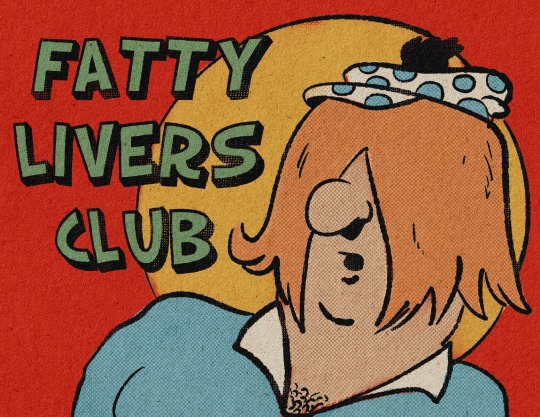Text

3 notes
·
View notes
Text
If you’re a fan of The Wire, you’ll understand this




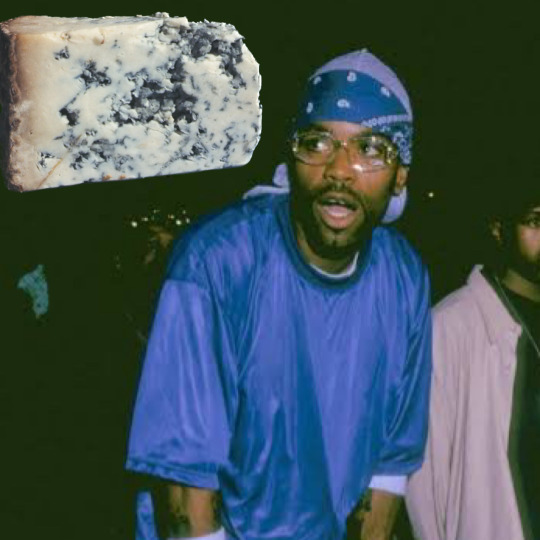


1 note
·
View note
Photo
Holy moly


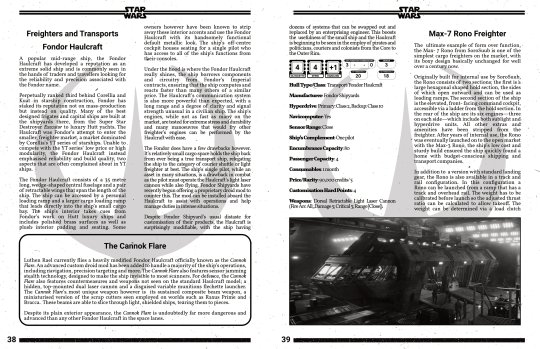

“Andor Sourcebook” by Josh Clark - a detailed, fifty-page document made in the style of the West End Games’ Star Wars ttrpg books
View the whole thing here
Artist’s Twitter and Ko-fi
222 notes
·
View notes
Text

USA 1997
19 notes
·
View notes
Photo

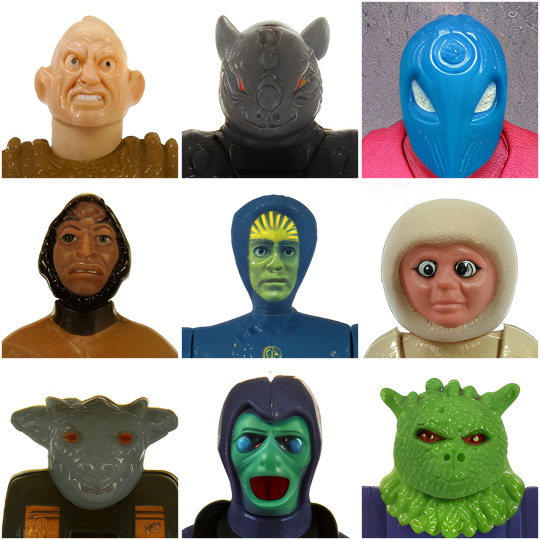




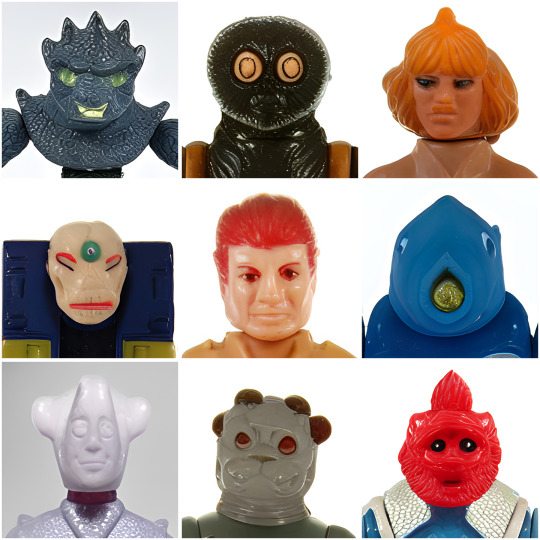

This Action Figure Does Not Exist (Yet), Part 1
Part 2 is here.
After Transformers Gen AI (Part 1, Part 2) I decided to scour a wider selection of alternate universe flea-market finds with a 500+ face database of 70s, 80s, and 90s action figure faces. Once again, using LookingGlassAi by @reachartwork.
These are also free for anyone to base their own new creaitons on. So if you want to sculpt a figure or do some fanart, you’re good to go. These tokens are entirely, nay, exceptionally fungible. so save and share to your heart’s content.
In that same spirit, here’s a link to the whole output. Tag yourself, or reblog with your favorites.
I am currently expanding the data-set, moving forward through time to evolve its capabilities. The next batch is going to hit the 90s heavily, with a lot of (curated) stuff from the likes of BTAS and Toybiz Marvel.
211 notes
·
View notes
Text
One DIY thing I’d like to learn!
Visible Mending
Introduction:
Visible mending is a decorative way to fix up an item. Instead of trying to make your mend as invisible as possible, the idea is to make it part of the garment's design.
Visual mending is not a single technique: it's more of a mindset. If you've got an item you love, it deserves to be mended, and if you're going to put that love into stitches, why not show them off?
That being said, there are some specific techniques that are popular with visible menders. Let's take a look!
Sashiko:
Sashiko is a type of traditional Japanese embroidery that is used to both decorate and reinforce fabric. In visible mending, sashiko is often used to cover up holes with patches or to reinforce thinning fabric. This technique uses a variation on the running stitch.
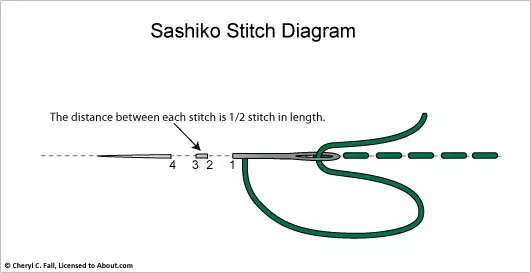
(Image source) [ID: sashiko stitch diagram: the distance between each stitch is 1/2 stitch in length.]
Some resources on sashiko:
SashiCo on YouTube: sashiko livestreams and information on the cultural aspect of sashiko.
Written tutorial by Upcycle Stitches.
Free sashiko templates by TheSpruceCrafts.
Fixing jeans with sashiko by Soluna Collective.
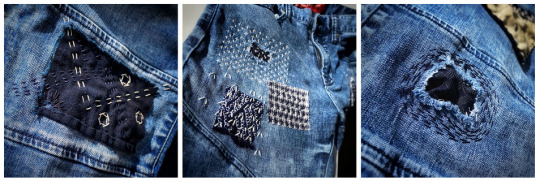
(Image source) [ID: three examples of sashiko embroidery on jeans fabric.]
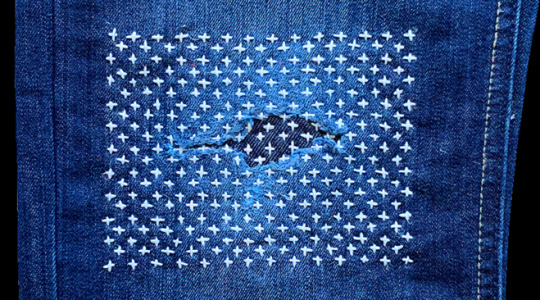
(Image source) [ID: sashiko embroidery with white thread on blue jeans fabric.]
Embroidery:
Regular embroidery is also a popular technique to accentuate your mends. Check out my embroidery 101 post to learn how to get started. You can embroider patches, or use embroidery to hide or accentuate any stitches you've made to fix holes. Embroidery's also a great way to cover up stains.
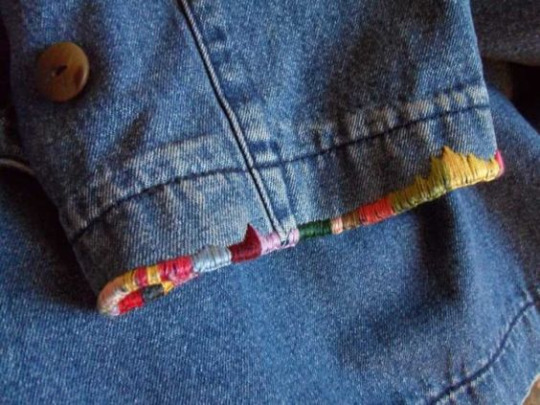
(Image source) [ID: colourful embroidery floss covers a worn sleeve edge of a jeans jacket]
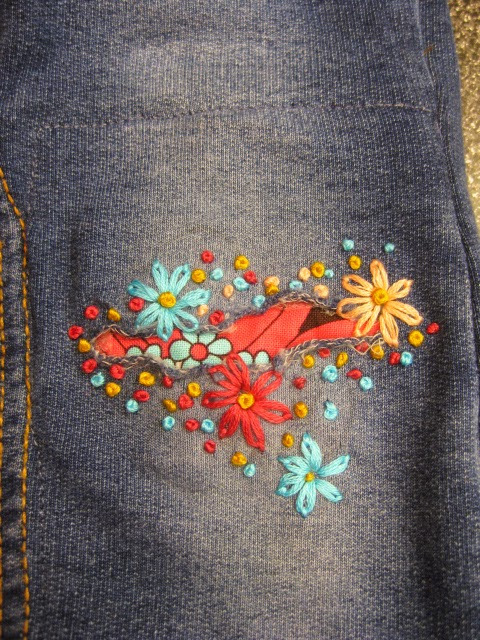
(Image source) [ID: colourful flower embroidery surrounds a hole in a pair of dark gray jeans. Fabric with a red and black flower print peaks out of the hole.]
Patches:
There are many ways to add patches to a garment. My tutorial on patches is a good place to start if you want to make custom-shaped patches to sew on top of your fabric. You can also sew your patch on the inside of your garment and have it peek out from beneath the hole you're trying to fix. Fun ideas for this are lace or superheroes.
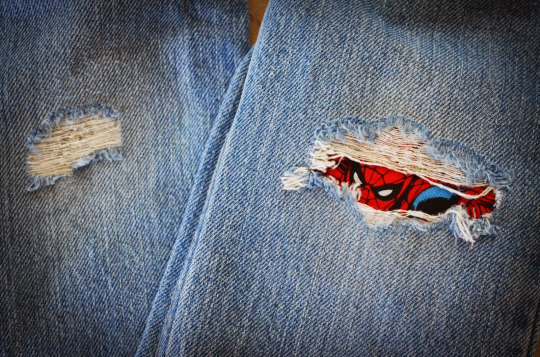
(Image source) [ID: Spiderman peaking out of a rip in a pair of blue jeans.]

(Source) [ID: a red flannel heart-shaped elbow patch on a gray knitted sweater.]
Darning:
Darning is a technique used to repair holes in fabric by using running stitches to weave extra fabric over the hole as to fill it up again. While traditionally darning is done in an invisible way by using the same colour of thread as your fabric, you can also use contrasting colours to accentuate your fix. Check out this written tutorial on darning by TheSpruceCrafts.

(Image source) [ID: vintage instructions on how to darn a hole.]
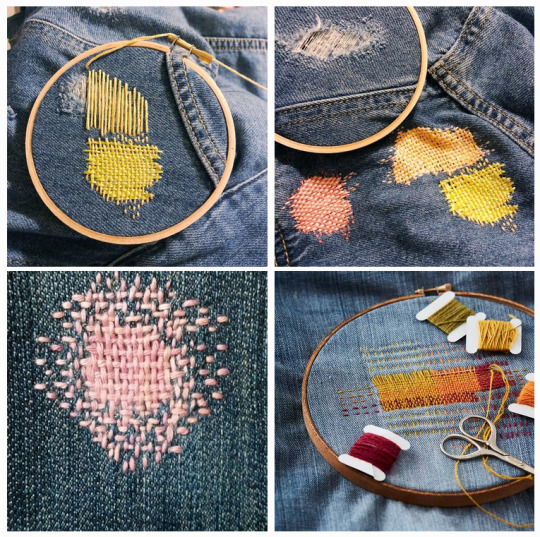
(Image source) [ID: four examples of darning on blue fabric with colourful contrasting thread.]
Conclusion:
Visible mending is a creative way to fix up your clothes and give them some personality at the same time.
You should be proud of the fact that you took the time and learned the necessary skills needed to mend your clothes! Show off what you did!
A fun side effect of wearing these obvious mends is that people will notice them. They'll remember your fixes the next time they're faced with a hole in their wardrobe, and it will make them more likely to try it for themselves.
These are just a few ways to visibly mend your garments. Want more inspiration? Check out Pinterest or r/Visiblemending on Reddit.
98K notes
·
View notes
Text
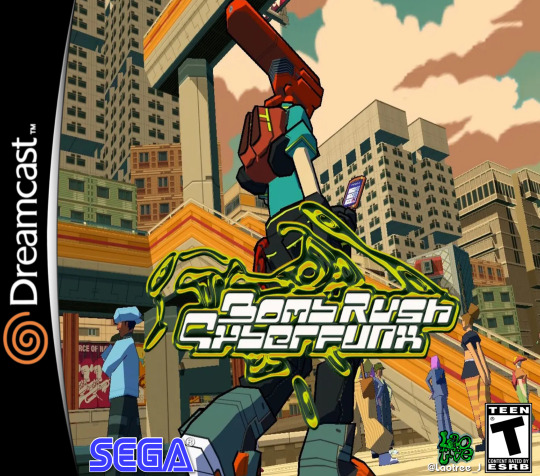
Was thinking how cool it would be to play Bomb Rush Cyberfunk on Dreamcast hardware and whipped up this boxart mock-up.
39 notes
·
View notes
Text


#retro design#vintage packaging#package design#80s aesthetic#impossible games#atari 2600#80s movies#80s games#willow#fantasy#lucasfilm
0 notes
Text


#retro design#vintage packaging#80s aesthetic#impossible games#80s movies#atari 2600#package design#labyrinth#david bowie#jareth#goblin king
62 notes
·
View notes
Photo
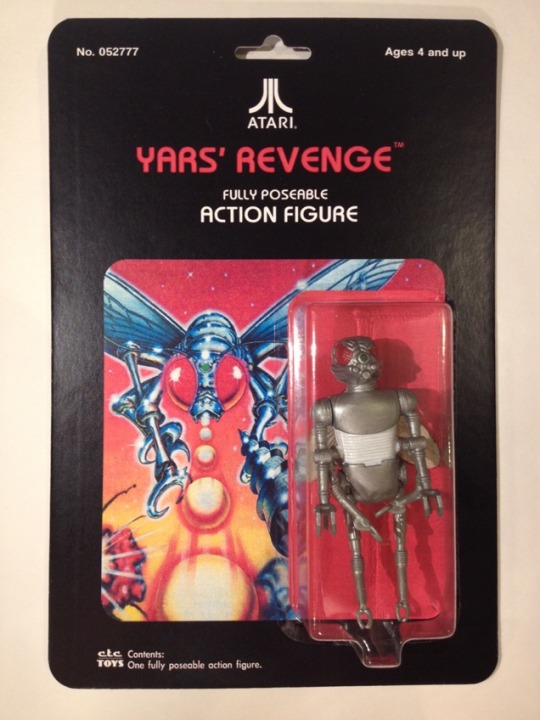

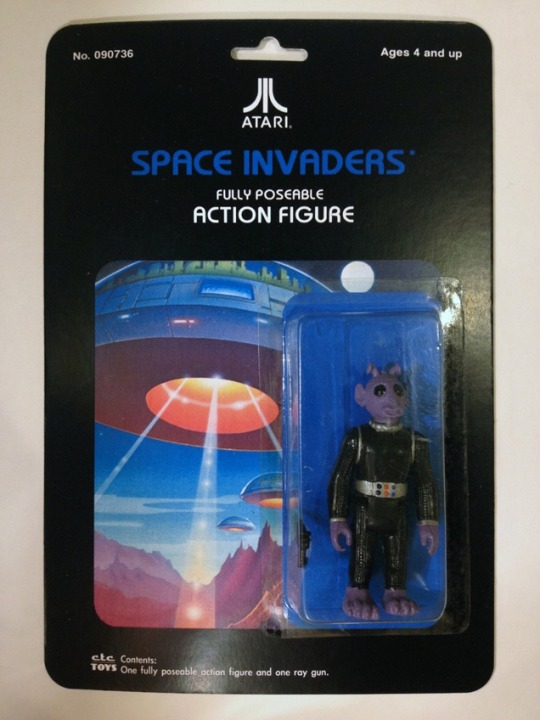

Kenner Star Wars figures reforged as a set of Atari characters
345 notes
·
View notes
Text

0 notes
Text

#guided by voices#goldstar for robot boy#package design#vintage packaging#80s aesthetic#retro design#90s indie#indie rock
0 notes
Text
Uğur Engin Deniz - After effects decided to give me a wonderful glitch while working on new stuff (3D+ai) - 29/07/2023
Source: Glitch artists collective - Facebook
13 notes
·
View notes
Text
My doggie, Violet

1 note
·
View note
